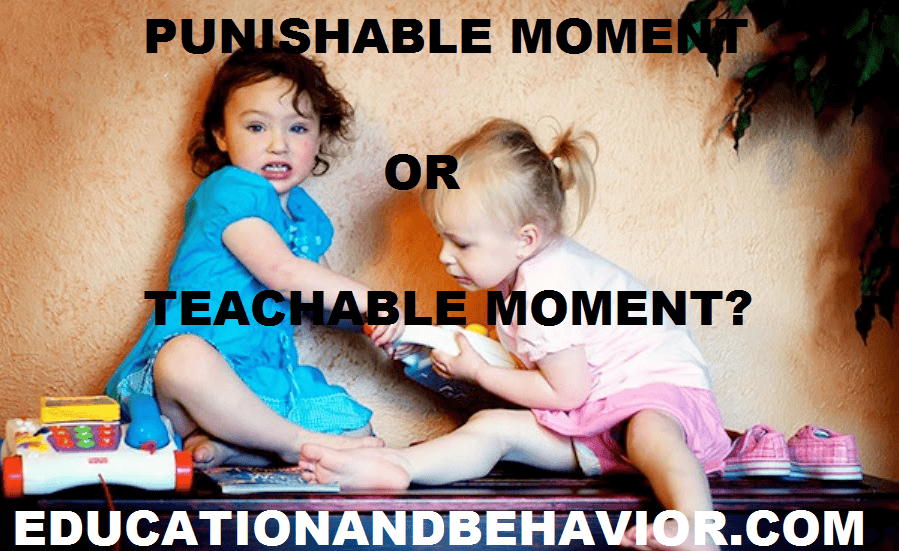17 Ways to Get Your Kids to Listen to You and Show You Respect

|
Getting your Trinity Audio player ready...
|
Check out my 17 tips, based on over 20 years of research and experience in the field of behavioral health.
1. Set expectations for your child ahead of time.
Rather than threatening to take things away, set expectations that must be met in order for your child to earn privileges (such as screen time or a sugary snack).
Which scenario do you think will bring more cooperation from your child?
1 – Sit down and do your homework now or no TV tonight?
2 – When your homework is done, you can watch your favorite show.
Children are much more cooperative when they know the expectations ahead of time and have the power to earn something, than when being threatened that something will be taken away.
If the task is overwhelming for your child, you can break it down into small increments (e.g., five minutes of homework = five minutes of their favorite show).
You can easily tweak a program like this to start where you know your child will be successful and gradually build from there.
For more info on how to get your child to comply with completing tasks, see:
- 3 Ways to Use Timers to Encourage Homework and Chore Completion
- How to Use Schedules to Improve Children’s Behavior
2. Be consistent and follow through (barring unforeseen circumstances).
If you tell your child that they can earn a privilege for completing certain tasks or meeting certain expectations, stick to what you said.
For example, if you say “first homework, then screen time” make sure you give the earned privilege after the task is completed.
If you do not allow your child to earn the privileges you promised, they will not take you or your rules seriously.
You also need to stay strong. When they push you and say “I don’t want to do my homework, I’m playing video games,” give a reminder in a confident, neutral tone, “Homework first, then screen time.”
3. Keep calm.
While it is human nature to get upset, do your best to keep a calm tone when enforcing your rules with your child. You can stick to what you say without yelling.
Enforcing rules without yelling, teaches your child that it is possible to stay calm and still get things accomplished even when you are frustrated, or things aren’t going your way.
This is a great example to set for your child.
4. Encourage and allow creativity even if you think it is too messy.
If your child wants to play in the dirt or make a milk-ketchup concoction, let them. Messes can always be cleaned up.
If your child is old enough to clean up their own messes, make sure they know ahead of time that the expectation is they clean up when done.
Make sure they clean up before moving on to another activity of their choice.
Keep in mind that some children, especially younger children, may need help cleaning up.
Research-Based Article: Doing Crafts Strengthens Parent-Child Bonds and Improves Mood
5. Give your child choices.
Children often seek control due to the fact that they are frequently being told what to do.

Give your child choices you are comfortable with (e.g., “Do you want to wear the green shirt or red shirt?” “Do you want jelly or butter on your bagel?” “Do you want to do your math or reading homework first?”).
6. Tell your child what to do, instead of what not to do.
Research and experience show that children (even teenagers) respond better to specific directions than to being told not to do something.
Some examples include:
- “Keep working on your homework.” rather than “Stop daydreaming.”
- “Here, draw on this paper.” rather than “Stop drawing on the walls.”
- “Hand me my purse.” rather than “Stop going in my purse.”
- “Walk nicely in the house.” rather than “Stop running in the house.”
Don’t say “can” when giving a direction, such as “Can you walk nicely in the house?” or “Can you draw on this paper?” Give the direction and say it with confidence.
7. Take an interest when your child tells you something about his thoughts, feelings, ideas, or just about his day.
Children are often excited to tell their parents something (e.g., “Guess what my teacher said in class today?” “I think I know what I want to be when I grow up.” “If I was president, I would make sure there were no more bad guys.”).
No matter how insignificant you think it is or if you just don’t feel like listening, do it anyway.
When your kids know you listen and care about what they say, they will come to you about important stuff, the stuff you want them to tell you about.
It also helps their self-esteem and confidence to feel like what they say matters. Kids with good self-esteem and confidence in themselves make better choices in general.
8. Take an interest when your child shows you something they did.
Working as a school psychologist over the years and even among my own friends, I have seen many kids show their parents a picture they drew or a dance move they learned, only for the parent to not say anything.
Children want to feel like we care about the things they are excited about, the things they did for the first time, the things they did by themselves, or the things they created.
Even if you think it is no big deal, it is a big deal to them, and that should be enough to make it a big deal for you. Again, this helps with confidence and self-esteem.
9. Acknowledge when your child puts forth good effort.
People like to hear when they did something right and this includes children. When people know they are doing the right things and pleasing others, they want to do more of it.
Some examples for acknowledging effort include: “You worked really hard on cleaning your room; it looks great,” “I saw you studying really hard for that test; you really put a lot of effort into it,” “I know you don’t like sharing your toys with your brother; but I saw you sharing really nicely with him this morning! Keep up the good work!”

Even if your child does not seem to care or does not seem phased by the praise, do it anyway. Their reaction on the outside may not match how they feel on the inside.
10. Let your child know that you understand when he/she is upset about something (teach and show empathy).
Some examples include: “I know you are upset that you didn’t get invited to that birthday party; it hurts not to feel included.” or “I know this homework assignment is frustrating you; let me see how I can help you with it.”
11. Listen to your child’s side of the story.
If you get a phone call from another parent or a teacher about something your child did wrong, take the time to hear what your child has to say. Even if your child was wrong, it is important for him/her to feel heard by you and you may get to know your child a little better in the process.
You can also use the opportunity as a teaching moment. For example, if your child kept talking in class to a friend because he was upset about something that happened at recess, talk to your child about alternative strategies he/she could have used other than disrupting the class (e.g., asking to talk to a guidance counselor, talking to his friend at the end of the day, talking to you about it after school, etc.).
This would also be a good time to remind your child that even when we are upset or don’t agree with something, we still have to follow the rules.
12. Tell your child about you.
While some things are your personal business and not meant for your child’s ears, kids feel connected to their parents when their parents can open up to them. For example, tell them about your school days, your hobbies, your dreams. Your child will be more likely to open up to you if you can open up to him/her.
13. Make time to do things with your child.
We are all busy. Some days fly by so fast that it seems like you got nothing done on your to-do list, yet you haven’t sat down once. In the midst of this craziness we call life, find time.

Whether it is five minutes a day or a few hours on the weekend, spend quality time with your child.
Some examples of quality time could include talking about your day, watching a movie together, reading a book together, going to the park, going out for dinner, cooking together, fixing something or making something together, etc.
If your child does not want to do these things with you, still ask, make an effort, make yourself available, and keep trying.
14. Show your child what good behavior looks like.
Children often get punished for behavior rather than being taught or shown an alternative strategy or different behavior. Here is an example:

Teach your child how to ask for things — if you see your child snatch a toy from another child, teach them how to ask for the toy rather than yelling or punishing them for snatching the toy.
Show them how to ask and have them practice it. Next time you see your child asking nicely for a toy, acknowledge the behavior (e.g.,That was really nice when you asked Cindy to play with her toy).
15. Encourage your child to be independent.
Let your child do as much as he can on their own, providing assistance only when necessary. One strategy I love is to wait for the child to ask for help before offering it.
I have watched a child struggle to get the wrapper off their juice box straw on several occasions. Rather than saying “Here, let me help you,” I would simply wait to see what they would do.
Sometimes they would ask for help, other times they would eventually get it open on their own.
In some instances, the child would get frustrated, throw down the straw and say, “I can’t do it.” This led to a perfect opportunity to teach the child how to ask for help.
16. Notice possible hidden talents.
Sometimes children do things that we find annoying that could actually be channeled into something positive.
For example, a kid who always wants to run in the house might be a good candidate to be your running partner.
A child who is always banging on the table might do well at the drums. Ask your child if they would like to try something positive, rather than getting frustrated and annoyed at the behavior.
17. Say “good morning,” “goodnight,” (or some variation of those), and “I love you” every day.
We all get busy, but this is an important one. Feeling loved, wanted, noticed, and acknowledged by our parents, is one of the best things for our self-esteem.
Even if you are not the lovey-dovey type, do it for your child. Make time for affection too (hugs, kisses, etc.).
Older children may not want affection but making an effort to give a hug or even asking for a hug is a great way to show you care.
Keep in mind: Some children may actually get more resistant when you try new strategies. You may need to be consistent over a period of time before you see change.
Also, even if you don’t get the results you hoped for, know that you are doing your part to use positive strategies to help your child. If things feel out of control seek help from a mental health or medical professional.
EDUCATIONANDBEHAVIOR.COM – Keeping Adults on the Same Page for Kids!
3 thoughts on “17 Ways to Get Your Kids to Listen to You and Show You Respect”
Comments are closed.







Great advice – many of the strategies listed are recommended by my personal parenting coach. They do work. Like you said “there is no magic” answer – these strategies included. Sometimes it may take years of doing these strategies over and over again before they work. Parents need to have patience and not give up.
Good advice. Just had an incident with my
niece. Wish I could share this article with my sister
but she’s not on any of the social networks .
Thanks for the comment Dale! Can you print it out or send it to her email?